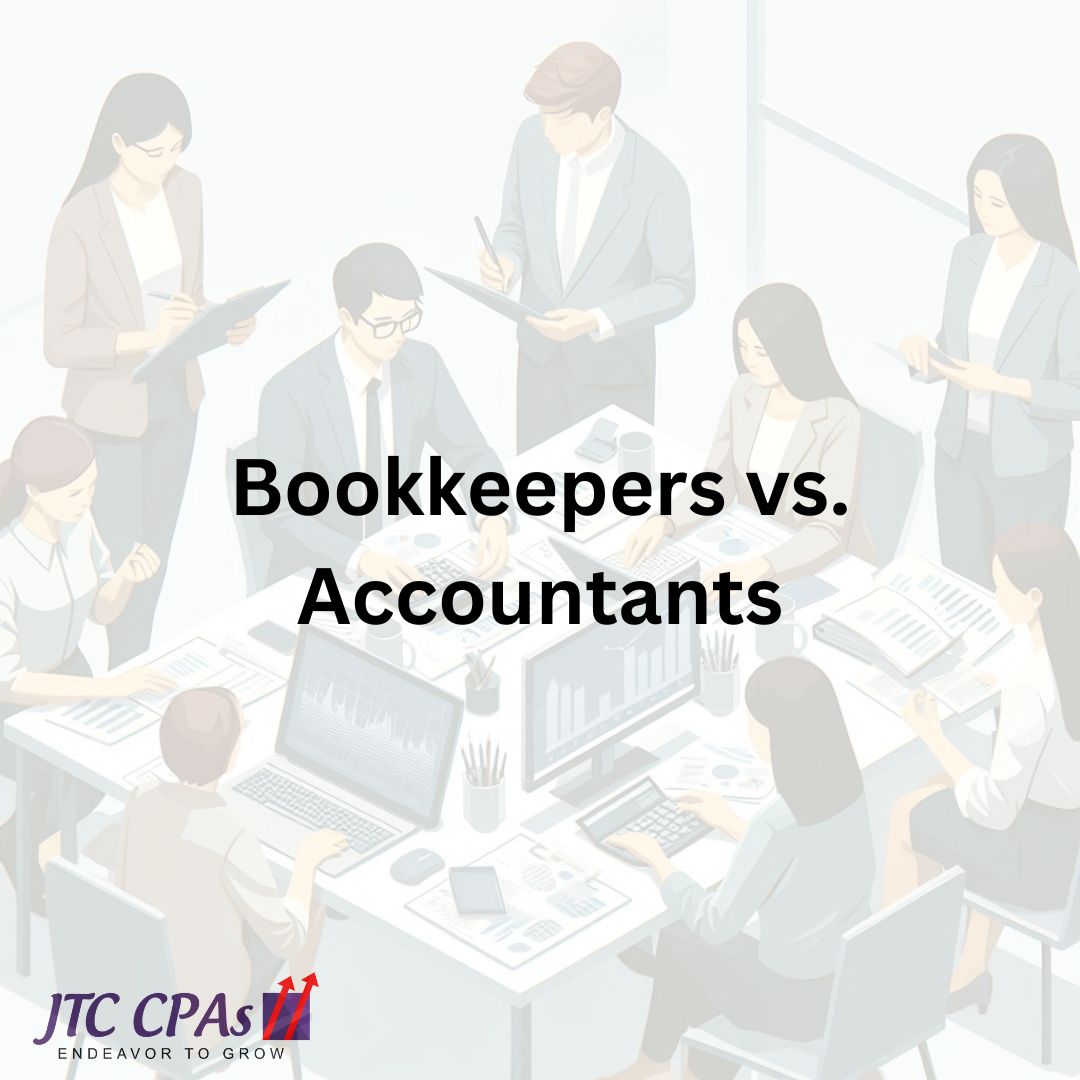
Published June 18, 2024
Most people can’t tell the difference between an accountant and a bookkeeper or think they’re the same. While both keep your finances in order, they handle different parts of the process. As a business owner, knowing these differences is vital. In this article, we’ll break down what sets accounting and bookkeeping apart and cover some other essentials.
First Things First: What’s the Difference?

- Accounting is the process of managing a company’s financials by recording, summarizing, analyzing, advising, and reporting. This is typically handled by Certified Public Accountants (CPAs), who perform both accounting and assurance tasks.
- Bookkeeping involves the record-keeping part of the process where all financial records of a business, including day-to-day transactions, are recorded and stored in a database. Unlike accountants, bookkeepers do not require a license, though they can obtain certifications depending on their location or employer requirements.
Where Bookkeeping Ends, Accounting Begins
Bookkeepers and accountants often overlap in their work since bookkeeping is a key part of accounting. Bookkeepers handle recording and classifying daily transactions like sales, payroll, and bill payments, focusing on accurate record-keeping and data summarization rather than interpretation or analysis.
Accountants build on the data provided by bookkeepers. They:
- Review financial statements prepared by bookkeepers.
- Analyze and interpret this information.
- Turn the records into comprehensive reports.
- Offer advice and make recommendations based on their analysis.
The quality of a bookkeeper’s records directly impacts the accountant’s advice to business leaders, ultimately affecting the overall health of the business.
REMEMBER: Every step in the financial process is important!
Bookkeeper or Accountant: Which Do You Need?
Deciding whether to hire a bookkeeper or an accountant depends on your specific needs.
Bookkeepers are generally:
- Less expensive to employ.
- Ideal for managing daily transactions and repetitive processes.
However, if you need strategic insights and advice for scaling your business, you will need an accountant. Here are some industry-related questions for you to consider:
- How familiar are you with the accounting procedures and requirements for your industry?
- Do you have proper controls for paying invoices, monitoring inventory, and receiving payments?
- How many employees do you have?
- What do your payroll cycles look like?
- Are there specific reporting requirements for your industry, and are you meeting them?
A skilled bookkeeper with extensive experience and a deep understanding of accounting applications may be more qualified to manage your books than a recent accounting graduate. When reviewing candidates, consider the following:
- What is their level of expertise, and do they have relevant certifications?
- Do they have experience in your industry?
- What specific services are they experienced in offering?
Today, more than ever, offering client accounting and advisory services is detrimental to success. Therefore, ensuring your team has the right mix of bookkeeping and accounting expertise is crucial for your business’s success.
If you’d like to know more, contact an expert like us at JTC CPAs. More than just accountants, JTC CPAs are your business counselors.
Contributor: Tony Bostian